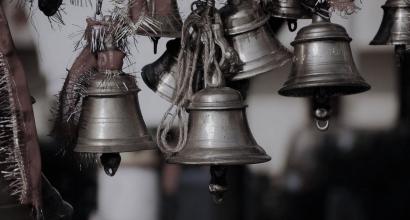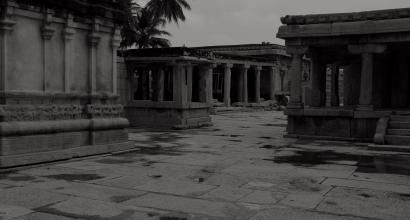Apart from his regular writings in Karnataka and other publications, perhaps the most lucid, fierce and passionate expositions on the urgent need for Responsible Government in Mysore are to be found in Problems of Indian Native States. This can be considered as a magnum opus of sorts among political literature in this genre. While most of it is addressed as Memorials to the then Maharaja of Bikaner, the sections devoted to Responsible Government are uniformly applicable to all princely states[1] of the time. We can examine a random[2] passage.
In many Native States at present, the prevailing system is one of unqualified autocracy. In an India making rapid strides towards democracy, such states are an obvious anomaly…Other states…in which there is a semblance of constitutional government, the actual fact [is that]… the Assembly or the Council is simply a clever contrivance for preventing true popular ascendancy and for justifying bureaucratic sins with the seeming support of democracy.
In DVG’s view, Responsible Government was[3] not “merely a device for political convenience and material comfort; it is also a training of character.” Needless, DVG also offers a five-point outline of a “True Constitution” for such a Government.
- Absolute supremacy of law, which is not subordinate to any individual or class.
- An elected Representative Assembly of which the legislature of the State is a part.
- Autonomous local institutions from the rural Panchayats to urban bodies.
- An executive council elected by the members of the Legislative Assembly.
- Full freedom of speech and criticism “subject only to the conditions imposed by the ordinary penal law.”
DVG’s passionate crusade in favour of Responsible Government found enthusiastic support and endorsement from a significant section of eminent people in public life. Public meetings, seminars, debates, and conferences were organized on a regular basis. Charters, appeals, resolutions and notices were forwarded to the Government. May 5, 1929 was a memorable day. A huge gathering met at the Majestic Theatre comprising M. Venkatakrishnayya, Hosakoppa Krishna Rao, Pamadi Subbarama Shetty, M.P. Somashekahra Rao, S.R.S. Raghavan, C.V. Narasinga Rao, K.T. Bashyam, K.T. Satyanarayana Murthy, B.L. Bayyanna, Veeranna Gowda, Ramanlal Tiwari, T.T. Sharma, Sanjeevappa, and other luminaries. The special feature of the conference was D.V.G.’s erudite and courageous condemnation of the infamous[4] Butler Committee Report. The Report which took two years to prepare only reaffirmed the British political duplicity. DVG’s resolution that a round table conference should be called to further debate the Report was unanimously accepted in that conference.
The consequences were immediate. A fresh wave of press clampdown, arrests, forced closures of newspaper offices and other forms of repression ensued. Several of DVG’s friends were arrested.
DVG hit back with equal ferocity by openly organizing the Indian States Subjects’ Day in Kalasipalyam on 3 June 1929. More than a thousand people attended. He made a vociferous speech the gist of which is as follows:
- The need for Responsible Government is more urgent now given the prevailing repressive atmosphere.
- Not just Mysore, but Responsible Governments must be established in all Princely States paving way for their eventual integration into the Indian Union. Princes must give up their obstinacy of sticking to political power and voluntarily usher in Responsible Government out of goodwill.
- The constitutional recommendations made by the Visvesvaraya Committee must be implemented forthwith.
As on earlier occasions, even this didn’t bear any fruit. The Mysore Government was simply unwilling to give in. However, the Government of India Act, 1935 was a turning point in the Indian freedom struggle. With this, there was a semblance of Responsible Government in the various states of British India. However, the Act maintained a studied silence on the Princely States by not mentioning them at all.
DVG began to study the Act with his usual thoroughness and after making solid preparations, made a speech in the Council on 26 January 1938. He categorically said on the floor that the Government of India Act of 1935 was highly unsatisfactory and unacceptable to one and all. Then he demanded that the Mysore Government should set up a committee to examine this Act minutely and come out with recommendations on the best method for merging into the Indian Union. It was a striking endorsement of his twenty-year-long refrain: Responsible Government in Mysore would make the path smoother for such a merger. A brief extract[5] is given below:
What Indian political life is suffering from today is not the paucity of truths…but the neglect of the practice of some elementary laws of the art of living together. Both democracy and nationalism are to me nothing else than certain highly evolved processes of this art of living together. It is from this point of view that I would look at the New Government of India Act…one supreme merit [is]…for the first time in Indo-British history, it marks an attempt to put both the political divisions together on one political platform and impart to India some measure of that statal unity and integrity of which she has so long stood in clamant need…We decline to make use of the present Act and defer the day of any kind of direct contact between the two parts of India now kept apart… In candid language, the chief objection of British India to taking the states as partners is that they are autocratically governed and that their influence in all-Indian councils will be anti-democratic…The pressure of nationalist aspiration is the only remedial agency…to base all our hopes for the reform of the States and their befitment for membership in all Indian polity.
It was an inspired speech that received pan-India applause in the political circles and was widely quoted in the media. However, the outcome was pathetic: Government representatives and officials merely paid it lip sympathy.
But Diwan Mirza Ismail saw value in the speech and pressurised DVG to sit on a committee for political reforms. By this time, the earlier animosity between the two had healed. Yet, DVG declined the offer with his typical courageous dignity in a letter[6] dated 3 March 1938:
What do you think of having on the committee a pauper pursued by bill collectors and bailiffs? Could he add to the strength…of the committee?... Let me plainly say that my position is not very different…I do sincerely wish to be left out of committees. No more the pose of a public man for me.
…I am not down-hearted or disappointed. Why should I be? … Hardship and I have long been friends, and I have courage in my heart. I am not afraid of hard work and privation. I’ll struggle…and pay my creditors like an honest man and then enjoy my freedom. This is now my prayer. I have never looked for any prizes…and do not want any – neither membership of the State Council nor the State’s deputyship in the Federal Legislature…I have never aspired to the honours of leadership…I am aware of my limitations. My role is that of a humble student and I am content with that. When I have redeemed my honour from the clutches of my creditors my wish is to give the rest of my life to the work of interpreting to my countrymen some of the things that I value in the great books I have read – in poetry and philosophy and politics; Shakespeare and the Ramayana and Plato are the voices that call me and to them I would go in my freedom. Public life has made me sick. My soul is crying for peace. So have mercy and let me go out of public life.
This letter like countless others by DVG is a collector’s prize, an inexhaustible balm for the distressed soul and a salve for the troubled mind. It would be highly instructive and inspirational if an independent collection of DVG’s letters is compiled.
The letter was also a preface to DVG’s eventual and complete exit from political life just two years later. In hindsight, one can reasonably say that DVG had already made preparations for such an exit about two years prior to writing this letter to Mirza Ismail.
But there was just one final chapter in his thirty-five-year long crusade for Responsible Government.
To be continued
Notes
[1] Princely States were also called Native States
[2] S.R. Ramaswamy & B.N. Shashi Kiran: Selected Writings of DVG: Volume 2 (Gokhale Institute of Public Affairs, 2020) p 203. Emphasis added
[3] Ibid, p 201
[4] Prepared by the British bureaucrat Harcourt Butler. It apparently was an investigation into the nature of the relationship between the British crown and the princes of the Princely States of India. Much discontent had been brewing among the princes as to their exact position under the British. The Butler Report simply reaffirmed what was then known as the “paramount power.” In more candid terms, paramount power was the untrammeled political power of the British to overrule or veto the princes without assigning any reason.
[5] D R Venkataramanan: Virakta Rashtraka DVG (Navakarnataka, 2014) p. 178
[6] Ibid, p 180. Emphasis added.










































